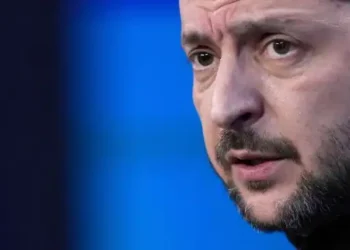The former Senior Climate Change Advisor to the United Nations, Dr. George Manful, highlighted the alarming situation of illegal mining in Ghana, known locally as “Galamsey.”
Reflecting on his early career with the Environmental Protection Agency (EPA) almost 43 years ago, he noted that, while illegal mining has long been a concern, the scale and devastation of today’s activities are unprecedented. The current environmental degradation, he emphasized, requires urgent and collective action from all stakeholders.
“…In the Environmental Protection Agency, almost 42, 43 years ago, we had tackled this problem of illegal mining.”
Dr. George Manful former Senior Climate Change Advisor to the United Nations
But now the dimensions we see it are way beyond what any of us could anticipate. Hence, there is the need for all of us, all interested parties to get together to try and fix this problem, and it must be fixed.” According to Dr. Manful the illegal mining activities, which have expanded significantly in recent years, pose a severe threat to Ghana’s environment. The destruction has been exacerbated by the involvement of foreign nationals and the introduction of heavy machinery into mining practices. Illegal miners, both Ghanaian and non-Ghanaian, now operate in broad daylight, causing unprecedented damage to water bodies, forest cover, and soil. Manful lamented the state of affairs.
“It’s been very bad now, extremely bad. I’ve never seen the state of our environment being degraded as we see now. For example, I mean water pollution, degradation of our rivers, putting in heavy metals in our rivers, mercury in our rivers, I mean it has never happened in these dams.”
Dr. George Manful former Senior Climate Change Advisor to the United Nations
Dr. Manful pointed out that, in the past, miners used simple tools such as pickaxes and shovels. However, the use of excavators and the diversion of rivers have led to more significant destruction, putting Ghana’s natural resources at risk. The high price of gold, which is currently valued at approximately $2,500 per ounce, has only worsened the situation.
Moreover, Dr. Manful pointed out that the profitability of illegal mining has attracted more participants, with many smuggling the gold out of the country, depriving the government of much-needed revenue. The Precious Minerals Marketing Company (PMMC), which regulates gold trade in Ghana, does not receive gold from illegal miners, meaning the state loses out on significant foreign exchange earnings. According to Dr. Manful, Ghana’s position as one of the leading gold producers in Africa further fuels this crisis:
“Ghana is blessed with gold. Ghana is about within one of the 10, 11, 12 nations producing the largest amount of gold. We are number 10 and we’ve beaten South Africa to rate as the biggest gold producer in Africa.”
Dr. George Manful former Senior Climate Change Advisor to the United Nations
Dr. Manful explained that the illegal mining problem must be addressed to protect both the environment and the economy. Small-scale mining contributes roughly 30% of Ghana’s total gold earnings, and if the illegal mining menace persists, the consequences could be disastrous.
The Concept of Ecocide
Dr. Manful introduced the idea of “ecocide,” a term that reflects the deliberate destruction of the natural environment. Dr. Manful noted that other countries, including Burkina Faso, are beginning to recognize ecocide as a serious threat. If Ghana does not take decisive action, the country could face long-term environmental devastation.
“Ghana will have to consider along the line to criminalize destruction of the environment. Otherwise, our water bodies will no longer be.”
Dr. George Manful former Senior Climate Change Advisor to the United Nations
Dr. Manful explained that heavy metals, especially mercury, which are often used in illegal mining, pose a severe risk to public health. The current water treatment methods employed by the Ghana Water Company do not filter out heavy metals. If mercury levels in water bodies increase, Ghanaians could be drinking contaminated water, leading to serious health consequences.
Moreover, Dr. Manful further elaborated on the technical challenges facing the Ghana Water Company in managing water contamination.
“Ghana Water treats our water for domestic consumption. They don’t remove heavy metals. The treatment processes used by Ghana Water do not take away heavy metals like mercury. So when mercury enters into the water body, [one] is going to drink mercury.”
Dr. George Manful former Senior Climate Change Advisor to the United Nations
Dr. Manful warned that while elevated mercury levels have not yet been observed in Ghana’s water bodies, the potential for contamination remains a real threat. Once heavy metals contaminate the water supply, there is little that can be done to reverse the damage, making it even more urgent to address the illegal mining activities that contribute to this pollution. Dr. George Manful’s view underscores the urgency of addressing the illegal mining crisis in Ghana.
The widespread destruction of the environment, coupled with the economic losses from gold smuggling, presents a national crisis. Dr. Manful called for the criminalization of environmental destruction and the adoption of the concept of ecocide serves as a wake-up call for policymakers and citizens alike. He asserted; “If efforts are not made to nip this challenge or this cancer in the bud, we are going to have serious problems.”The need for comprehensive and collaborative action to tackle illegal mining and protect Ghana’s natural resources cannot be overstated. The time for decisive intervention is now.
READ ALSO; Akuapem Poloo Reveals Her Source of Survival



















